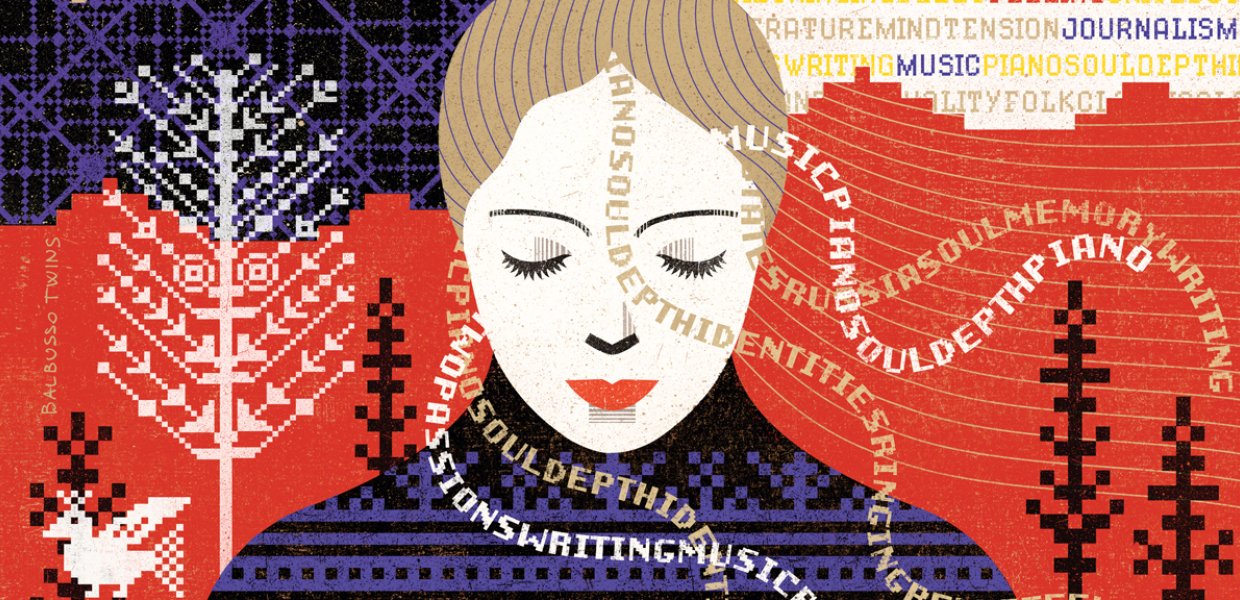Reflections about Russian soul and American reality.
The soft strum of a guitar resonates in my ears. Gusts of winter winds whistle through the mountains. My family, along with several other Russian families, huddle around the warmth of the cabin fireplace. Stars glisten through the windows. The fire crackles.
My earliest musical memories come from childhood camping and ski trips in the small towns of Ohio, Pennsylvania and Michigan. My parents and their Russian friends would sing songs by “bards,” or singer-songwriters from the Soviet era. Folk melodies such as “Tsiganochka” or “Oh, Moroz, Moroz,” with themes ranging from the beauty of life, to loneliness, to lyrics filled with social and political commentary. It didn’t matter if you knew how to play guitar or sing in tune. What mattered is the Russian soul, or dusha, which longs for music.
Russian artistic expression was never just a form of entertainment. It was a form of survival.
I was born in a little town near Moscow, and my parents emigrated to the United States when I was 11 months old.
My love for music was instilled at a young age. I sang in a Russian choir in my hometown of Columbus, Ohio, until I was 8 years old. But eventually, classical piano became my main form of musical expression.
Growing up as a Russian-American pianist, I constantly struggled to find my place between these two cultures. Russians told me, “You’re practically American,” while Americans asked me about my accent. It’s the tension of duality, the state of in-between, the idea that I don’t belong anywhere, that scares me. And moving forward through my life, it felt important to explore my identity. While the piano continued to be my main companion growing up, the further I dove into my musical education, the more confused and unfulfilled I grew. In America, I’m taught to focus on technique, career and success, while my Russian soul craved emotional and musical depth — I am split between these two ideologies.
When I was getting my undergraduate degree from UCLA in 2015, I started to write as a way to better understand myself and realized I could combine these two passions, writing and music, as a way to find a career path doing something I loved. Eventually, I found my place at USC, where I could pursue my master’s degree in specialized journalism (the arts), while also working on a second master’s in music through the USC Thornton School of Music.
Pursuing these dual paths enables me to continue my artistic interests while working toward a practical goal. I’m able to give voice to musicians who strive to make a difference in the classical music world, all while continuing to grow artistically as a writer and pianist. I’ve written opinion pieces about the impact of social media and technology on classical music, reviews of virtual performances, and features on artists coping without live concerts.
As I’ve written such articles during this period of pandemic isolation, I’ve found myself reflecting even more on the difference between art in Russia and the United States.
While artists in America are performing virtually and staying connected with their fans, art cannot thrive solely via Zoom — it must be experienced in a live space. Russians understand this: The doors to their theaters and concert halls have been kept open, while in America, bars and sports stadiums seem to take priority over performance spaces.
I love being an artist: It’s in my soul. As I continue to explore these dualities, the tension remains of not being able to fit in any one place — and that allows me to find the deeper meaning in both. In my studies, I have come to understand that art is a form of survival, and, I believe, America needs it now more than ever.
This article is adapted from a longer essay written for Ampersand, a digital magazine dedicated to creating a space that articulates the work of artists and makers primarily in Los Angeles.
